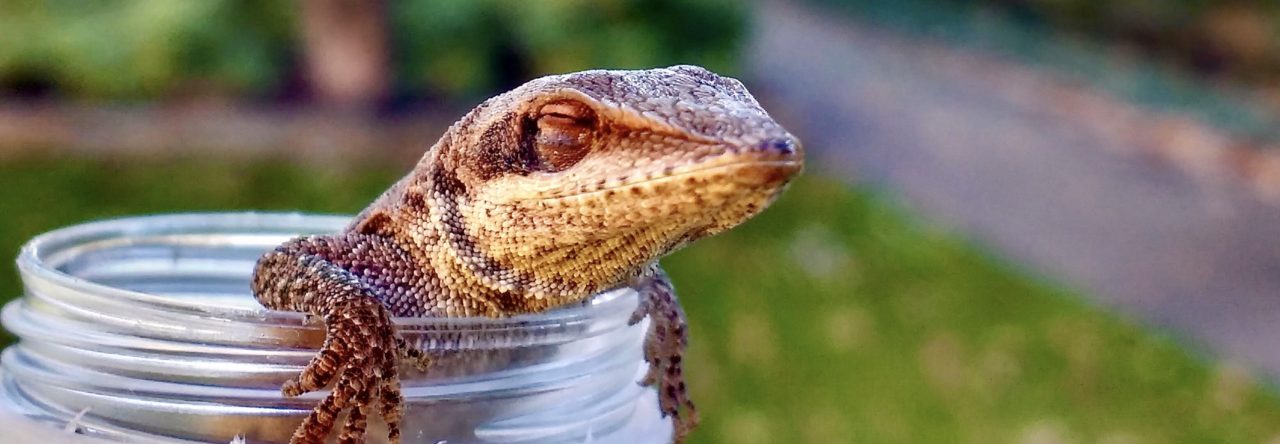
Anolis bartschi. Photo by Shea Lambert. Check out his previous post, with more photos.
The long-running U.S. embargo has failed to topple the Castro regime in Cuba, but has done a good job of stymying research on anoles. Despite its great biodiversity, less is known about the Cuban fauna and flora than other Caribbean islands (despite the great efforts of Cuba’s excellent scientific establishment). I can speak from personal experience in saying that even though scientific research is one of the exemptions in the U.S. embargo law, getting permission from the U.S. and Cuban governments to work there has often been difficult. Recently (and probably still the case, though the U.S. government’s interpretation of the law is constantly changing), graduate researchers, in particular, have troubles because they are not considered “full time professionals” and thus not eligible to travel there under the research exemption.
Let’s hope that all restrictions are lifted soon so that the marvelous biodiversity of Cuba can be observed, studied, and conserved.

Anolis vermiculatus from another Shea Lambert post.
- New Article on Anolis roosevelti and the Question of Its Survival - March 16, 2024
- Lizard Diving Champions: Trading Heat For Safety Underwater - March 15, 2024
- Do Large Brown Anoles Get the Most Mating Opportunities? - January 6, 2024


Skip Lazell
Right On: Excellent!
Martha Muñoz
Speaking both as a researcher who has been to Cuba and as a first-generation American to Cuban parents, I think this is great. I hope that this will lead to greater communication and interaction between the US and Cuba.
Armando Pou
I am a Cuban-American, however, placing politics aside, pragmatically there has never really been an “embargo” – only a stifling of ideas, my wish is that this change truly helps the people of Cuba. As an amateur naturalist and conservationist, I sincerely hope that you folks in the scientific community can study the situation and help mold and develop a plan moving forward that will protect the unique and diverse ecosystems that make up Cuba and its surrounding archipelago from rampant exploitation.